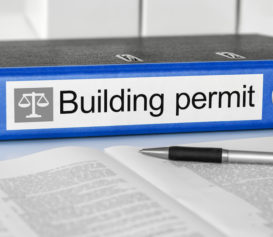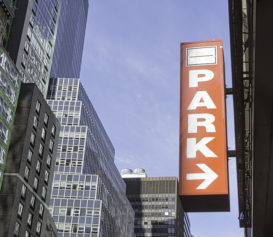Seven city agencies recently reviewed their policies as part of a mayoral executive order, resulting in several DOB changes for small businesses. Specifically, 26 reforms are being put into place by the DOB alone.
Before we talk about the changes, let’s talk about who they’re for:
What Is A Small Business, Exactly?
The mayor’s executive order for city agencies was given with the intent of reducing burdens on small businesses. But what does that mean for businesses, overall? When it comes to the DOB, what’s a small business?
Some of the below changes may apply to all named respondents/parties (not just those defined as small businesses). For other changes, small business definitions or descriptors have been added to specify who is eligible for reduced enforcement.
We’ll note any definitions (or lack thereof) for each of the below changes so you know whether or not it impacts your business.
Changes to Violation Enforcement
Off the bat, the city has extended the cure period for Class 2 (Major) and Class 3 (Lesser) violations from 40 days to 60 days from the date of NOV service. This will give named respondents more time to submit a Certificate of Correction in these cases, and avoid a hearing/penalties. This is also distinct from Class 1 violations, where a Certificate of Correction must always be submitted forthwith (immediately, and without delay).
Reminder – Aggravated I or Aggravated II penalties are never eligible for a cure, per the existing section of law.
The DOB will also eliminate the following violations:
- Approved Place of Assembly plans not available for inspection (Class 2)
- Failure to conspicuously post electrical work permit while work is in progress (Class 3)
- Place of Assembly contrary to Approved construction documents (Class 2)
- Electrical closet not dedicated to electrical distribution equipment only (Class 2 and 3)
- Failure to provide cover/faceplate/lampholder/luminaire canopy for electrical outlet (Class 2)
The DOB is also reducing penalties for the following violations:
- Electrical work without a permit (Class 3)
- Work without a permit (Class 3)
- Failure to post or properly post permit for work at premises (Class 2)
- Change in occupancy/use of C of O as per §28-118.3.1 – §28-118.3.2 by operating a Place of Assembly as per when current C of O does not allow such occupancy (Class 2)
- Luminaires and Lampholders not installed in an approved manner (Class 2)
Fine reductions (with some exceptions) seem to be 50% or greater, per the adjustments to the penalty chart.
Who does this impact?
Changes to cure date periods and violation eliminations/reductions seem to apply to all named respondents. In fact, in order to amend these rules, language specifying extended dates for smaller properties (1, 2, and 3 family homes) has been removed, with no additional language to qualify changes for only specifically sized businesses.
Here’s an example, directly from the city’s updated rule:
Section 1. Paragraphs (2) and (9) of subdivision (c) of section 102-01 of the rules of the City of New York are amended to read as follows:
(c) Correction and certification of correction.
(2) Violations classified as major or lesser must be corrected within [forty] sixty days from the date of service of the NOV [, except that such violations issued to one- or two-family homes must be corrected within sixty days of service of the NOV].
(9) For violations classified as Class 3 or for those Class 2 violations eligible for a cure, respondents may avoid a hearing by submitting a certification of correction acceptable to and received by the Department no later than [forty] sixty days from the date of service of the NOV. [For such violations issued to one- or two-family homes, a certificate of correction acceptable to the Department must be submitted and received no later than sixty days from the date of service of the NOV.] For violations classified as Class 1, a certification acceptable to the Department must be received by the Department forthwith.
Bracketed language are the parts being removed from existing laws. We’ve italicized words in the brackets, and bolded the remaining parts of the law for clarity. Language for violation removals (stricken from the penalty sheet directly) and mitigated penalties for Class 2 and 3 violations is very much the same. The DOB notes removed/adjusted language, with no references to small businesses.
Bottom line? There is no additional language here that limits these changes to small businesses. These updates, while meant to benefit small businesses, seem like they may be applicable to all named respondents. Of course, that’s based on what we’re reading in the rule. We recommend you consult with your attorney or OATH expert before making any decisions based on these changes.
Civil Penalties For Work Without A Permit
Language has been amended to specify that small businesses may receive a waiver of civil penalties for work without a permit, after demonstrating specifically (in a form and manner determined by the Department – TBD) that they’re a small business.
Who does this impact?
The following paragraph has been added to section 102-04, clarifying exactly what a small business is:
(10) Where an owner of a business that employs fewer than one hundred employees has been issued a violation for unpermitted work and such owner has demonstrated, in a form and manner determined by the Department, that they are the owner of the business.
Low Pressure Boilers & High Pressure Boilers
For both low pressure & high pressure boilers, small businesses can now be granted a “first-time waiver of penalties” for failure to file an annual boiler inspection report. These penalties are usually seen in the form of LBLVIO and HBLVIO violations, issued administratively by the DOB.
Who does this impact?
Language for both boiler types is the same, and reflects the definitions for WWP penalties – small businesses in this context are businesses that employ fewer than one hundred persons. For both high-pressure and low-pressure boilers, owners can take advantage of the first-time penalty waiver “where the owner has demonstrated, in a form and manner determined by the Department, that they are the owner of the business.”
Annual boiler inspections are due December 31st each year, so we may see additional details on how to prove small business status soon.
All the above changes go into effect on November 20th, 2022. You can read the full update from the DOB here.
Still, there’s more to come. The mayor’s executive order involves more agency reviews, and may result in future changes sooner rather than later. Stay tuned for updates.




